
Originally created in 1939, the iconic yellow wrapped chocolate has become an essential go-to drink for many Latinos during the cold. Photo by Erick Cabrera
Abuelita chocolate, La Lechera and Nescafé are all authentic staple products in many Latino kitchens. But how authentic are they?
A trademark dispute filed back in 2020 between Nestlé USA and two other Latino distributors placed its authenticity on the table.
Ultimately, the trial for the trademark dispute that was set to take place on Feb. 5, was cancelled. CALÓ News reached out to Daniel Pulecio-Boek, attorney for Ultra Distribuciones, to find out if the trial cancellation means they can continue to distribute the Mexican products but we have not heard back yet.
The claim had been filed in the U.S. District Court in Wester, Texas. Nestlé USA (NUSA) claimed that the distributors, Ultra Distribuciones Mundiales, were not authorized to import, distribute, and sell Nestlé food and beverage products in the United States that were only intended to be sold in Mexico.
Despite Ultra Distribuciones being a Mexico-based global distributor of Mexican products, including those produced by Nestlé Mexico, Ultra International is a Texas-based subsidiary of Ultra Distribuciones that imports and sells Mexican products in the United States, according to court documents.
Although both companies share similarities in their packaging and marketing, there are differences that make each product different compared to its international counterpart. Because of this, NUSA argued that it is confusing the customer and harming its business reputation.
CALÓ News spoke to Latinos within the communities to share their stories and the importance of these products' authenticity for many within the Latino community.
That yellow packaging and distinct cinnamon taste that Abuelita hot chocolate shared was something that caught Aaron Aguilar’s attention, back when he first tried it around the ages of nine or ten. Originally, Aguilar avoided trying it, believing that it was coffee at first, until he finally saw his grandma make it for him and his brothers one day.
“I can remember seeing [grandma] breaking those tablets apart and dumping them with a whole gallon of milk on the stove and [I was thinking] I’ve never seen coffee made that way,” Aguilar said.
Growing up in South Gate, Aguilar remembered the many times he would go over to his grandma's house and drink plenty of hot chocolate. Now, as a father, Aguilar looks forward to passing down these traditions of sharing hot chocolate with his kids.
“There's something really cool about passing that down to future generations,” Aguilar said. “My oldest one, my six-year-old, she's had it, and I'll be honest, she didn't love it at first. I might have made it not so great. I don't know if my grandma was using some sort of secret formula or something.”
Aguilar explains that by keeping these traditions in the way they are designed, it is best to help these products be remembered better in these communities. Remembering those fond memories when he was a kid and now creating new memories with his kids adds to these products because of how they were originally made.
Just being able to share a cup of Abuelita hot chocolate with a loved one creates important memories, something that Shahira Lopez fondly remembers from when she would spend time with her uncle.
“My parents would go to sleep really early, and I would stay up. [My uncle] would come from work late, and it was just our catching up time for a couple of years.” Lopez said.
Eventually, Lopez did have to say goodbye to her uncle and those conversations due to him moving to Maryland. That did not mean that she wasn’t able to create other memories with the rest of her family, like trying to mix the Abuelita chocolate with champurrado, is a thick Mexican hot chocolate drink made with masa, piloncillo, and cinnamon that's popular among other Latino families.
Coming from a Salvadoran family, Lopez recognizes that sometimes they prepare dishes differently compared to other Latino heritages. It does not stop them from trying out these iconic Mexican products, and she pointed out that it becomes a topic of conversation with the rest of her family.
Emily Flores shares these similar traditions that Abuelita chocolate brought to many Latino families. Flores recalled spending a lot of time seeing her grandma prepare hot chocolate for her and her cousins during cold days.
“I think it's really important because it gave us time to be together and be with our grandma.” Flores said.
Flores grew up with a lot of cousins throughout her life, but because of these traditions that were shared with her, it showed her the importance of being together with family and sharing this cultural product as a sort of glue for the community.
Many Latinos were introduced to these products by either their parents or grandparents, but Jackie Pera grew up in different circumstances. Pera told CALÓ News that when she was younger, there wasn’t anyone who shared these generational traditions with her, and it wasn’t until she married in her thirties that she was reintroduced to them.
“I know a lot of people whose grandparents showed them these cultural beliefs that [have] to do with eating traditional Mexican foods, traditional Mexican festivities and things like that.” Pera said, “But […] we didn't grow up like that.” Pera said.
After being reintroduced to her Mexican roots, Pera felt, in a sort of way, that she had found her identity with these traditions. She also highlights the iconic Latino Disney movie “Coco” that allowed her to really see these Latino traditions of pan dulce and Abuelita hot chocolate displayed.
“It's a sense of tradition, a sense of belonging, you know, especially for those who immigrated to this country.” Pera said.
The authenticity of these traditions shared with family will be impacted for Latino households because of this case.
In a story first reported by Axios, lawyers for Ultra Distribuciones said that the company has openly exported Nestlé Mexican products into the U.S. for years.
CALÓ News reached out to the lawyers representing NUSA, who declined to comment.

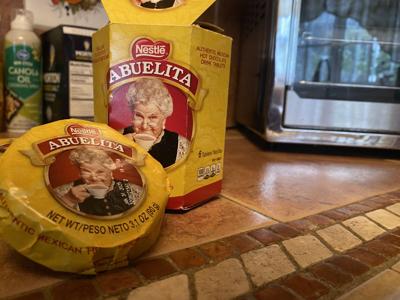
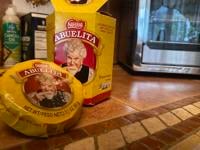



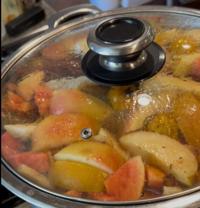

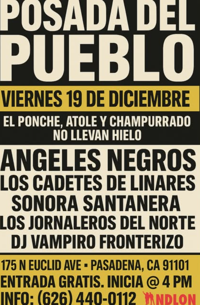

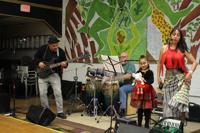
(0) comments
Welcome to the discussion.
Log In
Keep it Clean. Please avoid obscene, vulgar, lewd, racist or sexually-oriented language.
PLEASE TURN OFF YOUR CAPS LOCK.
Don't Threaten. Threats of harming another person will not be tolerated.
Be Truthful. Don't knowingly lie about anyone or anything.
Be Nice. No racism, sexism or any sort of -ism that is degrading to another person.
Be Proactive. Use the 'Report' link on each comment to let us know of abusive posts.
Share with Us. We'd love to hear eyewitness accounts, the history behind an article.